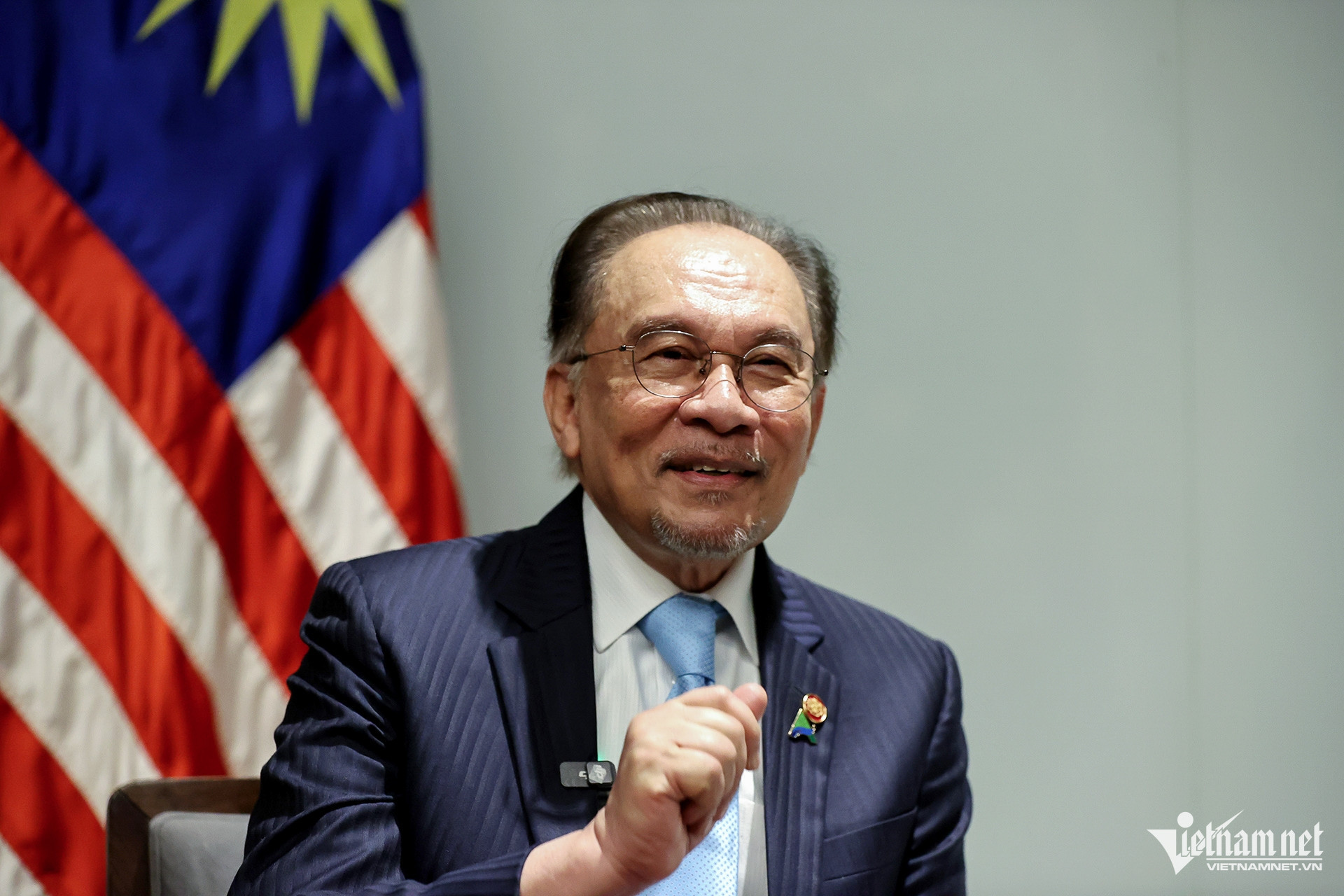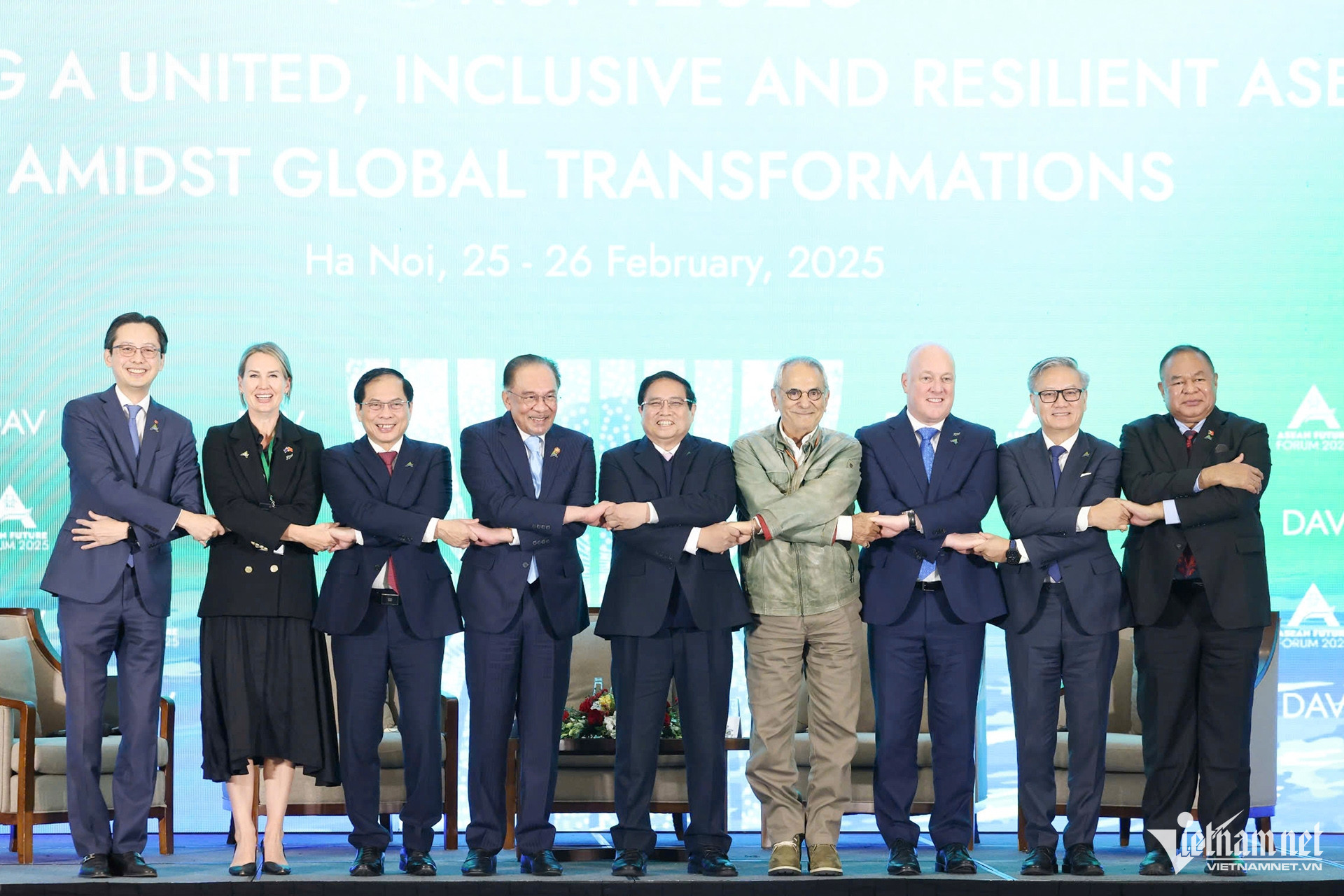The ASEAN Future Forum (AFF) 2025 concluded on February 26, with Malaysian Prime Minister Anwar Ibrahim and Timor-Leste President Jose Ramos-Horta offering insights on ASEAN’s future and Vietnam’s role in regional cooperation.

PM Anwar Ibrahim emphasized that AFF serves not only as a platform for policy recommendations but also as a mechanism to strengthen ASEAN’s shared priorities. He pointed to ASEAN’s ongoing efforts to enhance intra-regional trade and investment, stating that these discussions are crucial for the region’s economic stability.
The Malaysian leader highlighted Vietnam’s rapid economic growth and assertive foreign policy, describing the country as a key player in ASEAN’s long-term strategic initiatives. He praised Prime Minister Pham Minh Chinh’s commitment to cooperation, particularly in supporting Malaysia’s ASEAN Chairmanship in 2025.
PM Anwar Ibrahim reiterated that Vietnam remains central to ASEAN’s future, emphasizing that discussions at AFF will significantly contribute to Malaysia’s leadership role in the regional bloc. He expressed confidence that the recommendations and debates at the forum would provide valuable insights as Malaysia assumes the ASEAN Chairmanship.
Malaysia and Vietnam strengthen their strategic partnership

Speaking on the Comprehensive Strategic Partnership between Malaysia and Vietnam, PM Anwar Ibrahim emphasized the strong foundation of trust and cooperation between the two nations. He acknowledged Vietnam’s resilience in overcoming challenges, including economic disruptions caused by global crises.
Vietnam has demonstrated remarkable economic resilience, consistently achieving a 7% annual growth rate despite global uncertainties. PM Anwar Ibrahim attributed this success to Vietnam’s proactive economic policies, adding that its recovery and expansion strategies serve as a model for the region.
During his discussions with Prime Minister Pham Minh Chinh, the two leaders explored concrete measures to strengthen bilateral cooperation. Key areas of focus included renewable energy partnerships between Petrovietnam and Malaysia’s state-owned energy firm Petronas, ASEAN power grid expansion, Halal food industry development, artificial intelligence, semiconductor trade, education, military cooperation, and cybersecurity initiatives.
PM Anwar Ibrahim also noted his admiration for Vietnam’s holistic development approach, which extends beyond economic growth to social inclusivity and ethical governance. He cited discussions with General Secretary To Lam, who outlined Vietnam’s commitment to a balanced and humane development strategy.
Timor-Leste praises Vietnam’s leadership and economic model

Timor-Leste President Jose Ramos-Horta commended Vietnam’s successful hosting of AFF 2025, describing the event as professionally managed and highly impactful. He predicted that AFF would evolve into a premier international platform for discussing regional and global economic policies.
Reflecting on Vietnam’s economic transformation, President Ramos-Horta described the country’s achievements as extraordinary, emphasizing that Vietnam’s success is rooted in both contemporary economic strategies and its historical legacy of resilience.
Vietnam’s economic growth stands out not just for its high GDP expansion, but for its equitable distribution of wealth. Unlike many nations where rapid economic growth primarily benefits corporate elites, Vietnam has ensured that its progress lifts all segments of society, particularly the most vulnerable groups.
President Ramos-Horta also highlighted Viettel’s role in Timor-Leste, where its subsidiary, Telemor, has emerged as the nation’s leading telecom provider, surpassing other multinational competitors. He credited Vietnamese technology companies for enhancing connectivity and digital transformation in his country.
Looking ahead, Timor-Leste aims to expand cooperation with Vietnam in sectors such as telecommunications, agriculture, food security, water resources management, pharmaceuticals, and healthcare.
Vietnam’s support for Timor-Leste’s ASEAN membership bid
As Timor-Leste continues its efforts to join ASEAN, President Ramos-Horta emphasized the importance of Vietnam’s support in facilitating his country’s accession. Vietnam’s deep engagement in ASEAN and its growing influence in global diplomatic affairs have positioned it as a crucial advocate for Timor-Leste’s integration into the regional bloc.
He expressed gratitude for Vietnam’s active support in ASEAN forums, noting that Vietnam’s endorsement strengthens Timor-Leste’s confidence and credibility as it prepares for full membership.
Vietnam’s economic rise and diplomatic engagement continue to earn widespread recognition among ASEAN leaders. Both Malaysia’s Prime Minister Anwar Ibrahim and Timor-Leste’s President Jose Ramos-Horta highlighted Vietnam’s ability to shape regional economic policies and foster deeper collaboration within ASEAN.
As Vietnam advances its ambitious economic and diplomatic agenda, its leadership in technology, sustainability, and regional security will further solidify its position as a key player in ASEAN’s future.
Tran Thuong